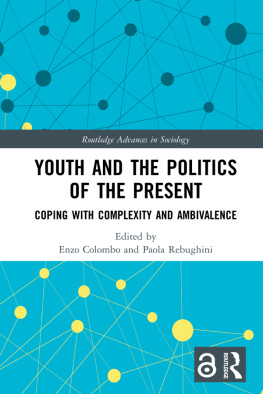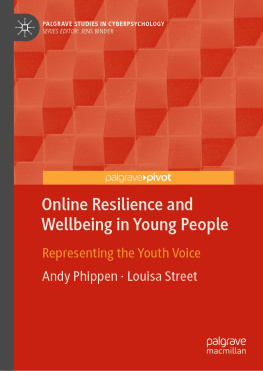Japans Emerging Youth Policy
From the 1960s onwards, Japans rapid economic growth coincided with remarkably smooth transitions from school to work and with internationally low levels of youth unemployment. However, this changed dramatically in the 1990s and, by the 2000s, youth employment came to be recognized as a serious concern requiring an immediate response. What shape did this response take?
Japans Emerging Youth Policy is the first book to investigate in detail how the state, experts and the media, as well as youth workers, have reacted to the troubling rise of youth joblessness in early twenty-first-century Japan. The answer that emerges is as complex as it is fascinating, but comprises two essential elements. First, instead of institutional carrots and sticks as seen in Europe, actors belonging to mainstream Japan have deployed controversial labels such as NEET (Not in Education, Employment or Training) to steer inactive youth into low-wage jobs. However, a second, contrasting approach has been crafted by entrepreneurial youth support leaders, building on what the author refers to as communities of recognition. As illustrated in this book using evidence from real sites of youth support, this approach puts an emphasis on exploring the user (i.e. the support-receiver) whereby complex disadvantages, family relationships and local employment contexts are skilfully negotiated. It is this second dimension in Japans response to youth exclusion that suggests sustainable, internationally attractive solutions to the employment dilemmas that virtually all post-industrial nations currently face but which none has yet seriously addressed.
Based on extensive fieldwork that draws on both sociological and policy science approaches, this book will be welcomed by students, scholars and practitioners in the fields of Japanese and East Asian studies, social innovation, comparative social policy, youth sociology, the sociology of social problems and social work.
Tuukka Toivonen is a Junior Research Fellow in Management at Green Templeton College, University of Oxford, UK .
The Nissan Institute/Routledge Japanese studies series
Series Editors:
Roger Goodman
Nissan Professor of Modern Japanese Studies, University of Oxford, Fellow, St Antony's College
J.A.A. Stockwin
Formerly Nissan Professor of Modern Japanese Studies and former Director of the Nissan Institute of Japanese Studies, University of Oxford, Emeritus Fellow, St Antonys College
Other titles in the series:
The Myth of Japanese Uniqueness
Peter Dale
The Emperors Adviser
Saionji Kinmochi and pre-war Japanese politics
Lesley Connors
A History of Japanese Economic Thought
Tessa Morris-Suzuki
The Establishment of the Japanese Constitutional System
Junji Banno, translated by J. A. A. Stockwin
Industrial Relations in Japan
The peripheral workforce
Norma Chalmers
Banking Policy in Japan
American efforts at reform during the Occupation
William M. Tsutsui
Educational Reform in Japan
Leonard Schoppa
How the Japanese Learn to Work
Second edition
Ronald P. Dore and Mari Sako
Japanese Economic Development
Theory and practice Second edition
Penelope Francks
Japan and Protection
The growth of protectionist sentiment and the Japanese response
Syed Javed Maswood
The Soil, by Nagatsuka Takashi
A portrait of rural life in Meiji Japan
Translated and with an introduction by Ann Waswo
Biotechnology in Japan
Malcolm Brock
Britains Educational Reform
A comparison with Japan
Michael Howarth
Language and the Modern State
The reform of written Japanese
Nanette Twine
Industrial Harmony in Modern Japan
The intervention of a tradition
W. Dean Kinzley
Japanese Science Fiction
A view of a changing society
Robert Matthew
The Japanese Numbers Game
The use and understanding of numbers in modern Japan
Thomas Crump
Ideology and Practice in Modern Japan
Edited by Roger Goodman and Kirsten Refsing
Technology and Industrial Development in Pre-war Japan
Mitsubishi Nagasaki Shipyard,
1884-1934
Yukiko Fukasaku
Japans Early Parliaments, 1890-1905
Structure, issues and trends
Andrew Fraser, R. H. P. Mason and Philip Mitchell
Japan's Foreign Aid Challenge
Policy reform and aid leadership Alan Rix
Emperor Hirohito and Showa Japan
A political biography Stephen S. Large
Japan: Beyond the End of History
David Williams
Ceremony and Ritual in Japan
Religious practices in an industrialized society
Edited by Jan van Bremen and D. P. Martinez
The Fantastic in Modern Japanese Literature
The subversion of modernity
Susan J. Napier
Militarization and Demilitarization in Contemporary Japan
Glenn D. Hook
Growing a Japanese Science City
Communication in scientific research
James W. Dearing
Architecture and Authority in Japan
William H. Coaldrake
Womens Gidayu and the Japanese Theatre Tradition
A. Kimi Coaldrake
Democracy in Post-war Japan
Maruyama Masao and the search for autonomy
Rikki Kersten
Treacherous Women of Imperial Japan
Patriarchal fictions, patricidal fantasies
Hlene Bowen Raddeker
Japanese-German Business Relations
Competition and rivalry in the inter-war period
Akira Kudo
Japan, Race and Equality
The Racial Equality Proposal of 1919
Naoko Shimazu
Japan, Internationalism and the UN
Ronald Dore
Life in a Japanese Womens College
Learning to be ladylike
Brian J. McVeigh
On The Margins of Japanese Society
Volunteers and the welfare of the urban underclass
Carolyn S. Stevens
The Dynamics of Japans Relations with Africa
South Africa, Tanzania and
Nigeria
Kweku Ampiah
The Right to Life in Japan
Noel Williams
The Nature of the Japanese State Rationality and rituality
Brian J. McVeigh
Society and the State in Inter-war Japan
Edited by Elise K. Tipton
Japanese-Soviet/Russian Relations since 1945
A difficult peace Kimie Hara
Interpreting History in Sino-Japanese Relations
A case study in political decision
making
Caroline Rose
Endo Shusaku
A literature of reconciliation
Mark B. Williams
Green Politics in Japan
Lam Peng-Er
The Japanese High School
Silence and resistance
Shoko Yoneyama
Engineers in Japan and Britain
Education, training and
employment
Kevin McCormick
The Politics of Agriculture in Japan
Aurelia George Mulgan
Opposition Politics in Japan
Strategies under a one-party dominant regime
Stephen Johnson
The Changing Face of Japanese Retail
Working in a chain store Louella Matsunaga
Japan and East Asian Regionalism
Edited by S. Javed Maswood
Globalizing Japan
Ethnography of the Japanese presence in America, Asia and Europe
Edited by Harumi Befu and Sylvie Guichard-Anguis
Japan at Play











